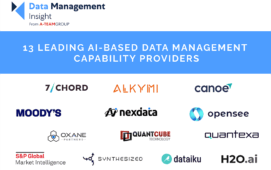The US Office of Financial Research (OFR) has stepped into the reference data standards debate with plans to prepare and publish a financial instrument reference database including a set of standards for creating and describing financial instrument reference data. The OFR also plans to add a taxonomy or ontology to establish how instruments relate to one another, but warns that success of the database will depend on the adoption and implementation of data standards and stakeholder use of reference data conforming to the standards. It also addresses US rather than global markets, begging the question of whether what happens over there will happen over here.
The OFR’s plan to establish a common language for financial instruments is based on a Dodd-Frank mandate that requires the OFR Data Centre to ‘prepare and publish, in a manner easily accessible to the public … a financial instrument reference database’. The plan is outlined in an OFR Viewpoint, ‘An Approach to Financial Instrument Reference Data’.
The document notes that data describing financial instruments is often complex, incomplete and incompatible, impeding companies and investors in managing their risks and regulators in overseeing financial firms. It proposes the preparation and publications of a set of standards for creating and describing financial instrument reference data through a private-sector solution with public-sector involvement.
The goal – which the OFR aims to achieve with the help of regulators, financial market participants, standards development organisations and providers of financial instrument reference data – will make available financial instrument reference data standards that can capture the diverse, complex and evolving nature of financial instruments based on common terminology, formats and structures.
The OFR acknowledges that mature financial products, such as stocks and bonds, often have standard terms, definitions and formats, but notes that newer, innovative financial instruments and specialised OTC instruments, such as credit default swaps, have prompted the development of proprietary or firm-specific data descriptions.
Standardising reference data requires three key components: a data dictionary that will be populated with consistent terms and definitions; data standards that will define the structure and format of the reference data and relate to the terms and definitions defined by the data dictionary; and reference data including a unique identifier and comprehensive descriptive data for each financial instrument.
The OFR has not set out a specific timeline for development of the database, but says its first step will be to host information gathering sessions with industry participants and develop an open, public process for examining the issues of standardisation. The introduction of standardised reference data is then expected to be incremental. A common data dictionary and associated data standards underlying the reference data provided by vendors will be made available in phases and will initially address the minimum set of free and open data elements necessary to differentiate financial instruments. Later, dictionary coverage will be expanded based on use-case requirements and ultimately to span all instrument types.
The OFR concludes: “The result will be a common language employed by all US public and private financial market participants to establish a singular understanding of a financial instrument and its components.”
Comments on the OFR viewpoint document can be submitted to www.regulations.gov by Friday, May 26, 2017.
Subscribe to our newsletter




